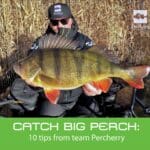Order by 1 PM CT for Same-Day Free Shipping (Lower 48 | Mon-Fri)
Without question, if you want to know how to catch Big perch or any perch fish for that matter then you need to talk to those that are the most passionate and dedicated to the sport of fishing for perch.
We are lucky to have such experts on our Pro-Team in Thomas and Holgar of Percherry Fishing. In this blog, they share 10 FAQ to help you have greater success targeting Perch. Subjects covered in this blog treated as the most frequently asked questions Thomas & Holgar encounter.
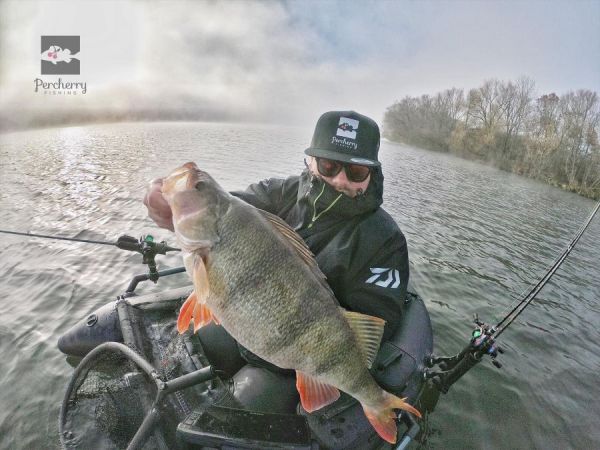
We fish 99% in Dutch waters. We live right on the border with Holland, so it is a second home for us. Furthermore, the fishing laws in Holland are much more friendly to anglers. The catch and release system, for example, allows us to gently put the fish back into the water. In Germany, this is only possible in a few cases. We have specialised in perch fishing. That’s how our name (Percherry) was born. The name is derived from Perch and cherry. In Germany, perches are called big cherries.
We at Percherry specialize in catching perch from the belly boat. Perch is our great passion. So we have been able to catch specimens well over the magic limit of 50cm. We have already caught fishes of 54cm, 55cm and 56cm and hold the current Dutch perch record with 56,5 cm and 3,05 kg
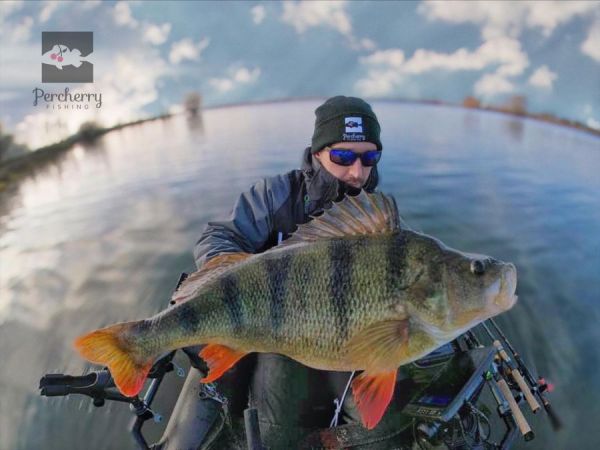
The choice of the right waters and spots plays an essential role and decides on success or not. Perch love waters that are very clear, have many mussels and a good crab population. If you find such places the perch are not far away. We usually fish large lakes with connections to large river systems. If you find them, you will also find the perch.
In our experience, perch are not as affected by weather changes as pike or zander. What perch do not like, however, are changes in the visibility of the water (clear water or murky water). Perch are predators of visibility and have problems with murky water. They also dislike rapid water temperature changes caused by rain or meltwater.
The answer is clearly yes. From October to March you can catch big perch in a targeted manner. And there are several reasons for this. The large specimens retreat from October to areas with calm currents and prepare for the spawning season in spring. For this, the fish get into a great feeding frenzy and lay the basis for the winter months. As soon as the water gets colder, the fish and food fish move into the deeper water.
This also includes the smaller perch. For the most part, however, the large fish remain in the shallow water and feed on crabs. If you now fish these shallow areas you will only catch the big fishes, there are no more small fishes here. The disadvantage is that you have to find the fish first. There are also biting windows throughout the day. This means that in the worst case there is no fish contact for a very long time. But if it bites, then it is the big fish.
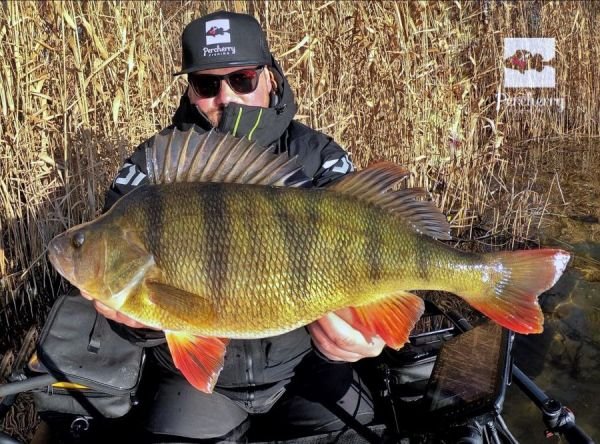
There are indeed seasonal differences. In summer we fish much faster and more aggressively. In winter, however, almost in slow motion. In summer, jigging and the Carolina Rig with pintails up to 4 inches are among our favorites. In winter, however, skirted jigs with crabs up to 6 inch or the Carolina or Dropshot Rig
Skirted jigs we lead in small, very slow jumps over the bottom of the water and sometimes leave them standing for a few seconds on the spot. The Carolina Rig is very fast in summer, paired with pintails we achieve a very seductive darting action. In winter, however, we lead it slowly and drag it a lot over the ground – also here with some breaks.
There are a lot of them. In summer I prefer pintails like the Keitech Shad Impact in 3″ or 4″ or the OSP Dolive Stick in the same size. Both lures imitate excellent small brood fish. In winter I use craws or Creature Baits like the OSP Dolive Craw or the Illex Scissor Comb.
I love the rods from St. Croix and I fish the whole linup of the Legend Extreme. A very sensitive and yet with sufficient backbone equipped rod. The reel used in the Spinning version is a Megabass Gaus 20x. On the Baitcaster a Steez SV TW SLP Works or a Megabass IS63 Lariat Racing Illusion is preferred.
I have full confidence in the lines from Sunline. I have tried almost all lines that are available on the market. For me there is nothing better.
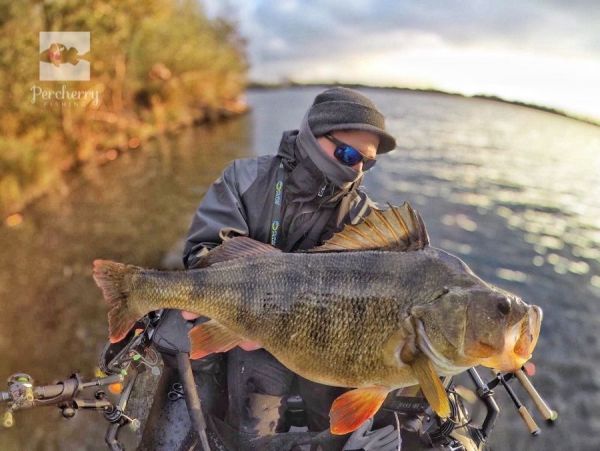
One of the main reasons is probably that we can fish in places where boats or shore anglers can hardly reach. In addition, unlike boat anglers, we move very, very quietly. Sometimes we have the feeling that we are seen more like fish than a boat. We have often experienced fish coming between our fins. In addition, with a bellyboat, the spots can be fished very precisely.
The technology is certainly a great help. We currently use echo sounders from the Garmin Echomap series and are thus able to find the right spots and fishes quickly. Important is the right setup on the bellyboat. For example, it’s important to place the transducer as far forward as possible to be able to fish with the rod in the cone and to be able to see your lure on the echo sounder when you drop it.
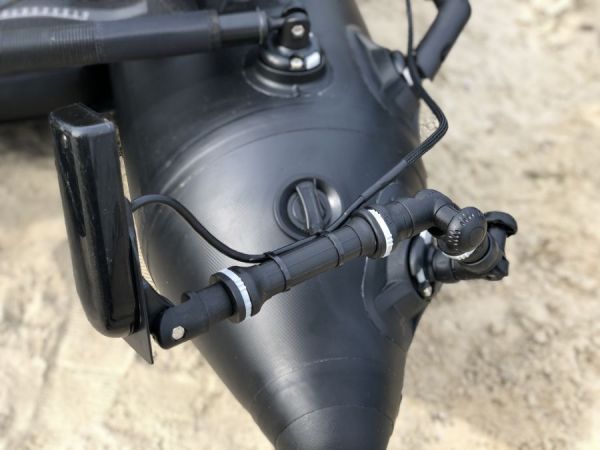
Transducer arm-mounted using the RIBPort mount
Unfortunately, we see it again and again with beginners that the transducer is attached too far to the side or even behind. The Railblaza Kayak Canoe Sounder & Transducer Arm helps a lot and allows the arm to fold up and down – a great thing. We also use a sophisticated electric motor which allows us to cover longer distances. The Floatplus system is quiet, highly efficient and a perfect solution.

These are our latest custom 12bb Belly boat setups with other key RAILBLAZA accessories we use regularly if your keen to know more about these setups leave us a message on FaceBook or Instagram
If you found this blog useful please share it around and sign up to our newsletter for more tips like these - Sign up to our Newsletter for regular updates HERE
